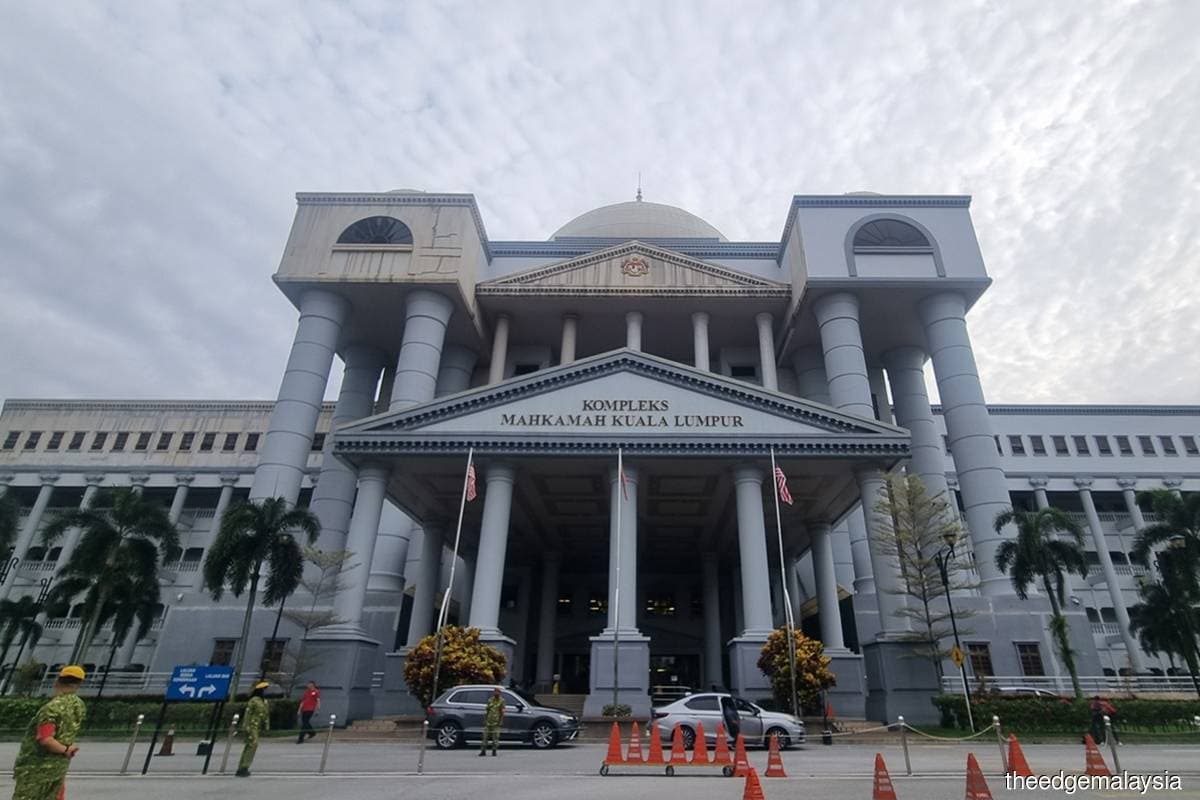
- The appellate bench had also unanimously overturned a High Court order for the K Residence JMB to reconvene its AGMs, and to allow them to vote at the meetings.
PUTRAJAYA (July 29): The High Court will continue to hear and determine if there are outstanding payments (arrears) owed by property developer KL Landmark Sdn Bhd and seven others, to the joint management body (JMB) of K Residence, rather than summarily allowing the originating summons they had filed against the JMB.
A three-member Federal Court bench, led by newly minted Court of Appeal (COA) President Datuk Abu Bakar Jais, on Tuesday dismissed KL Landmark and seven other parties’ leave to appeal by posing eight questions of law to the apex bench.
Abu Bakar said that this case, as the COA had ruled, should be allowed to be heard at the High Court to decide and dispose of.
He said the matter had not crossed the stage where the matter needs to be heard before the Federal Court.
“The case has not crossed the threshold of Section 96 (a) of the Courts of Judicature Act 1964 for this court to grant leave to hear the questions. The notice is dismissed,” he said.
Abu Bakar, who sat with Federal Court judges Datuk Nordin Hassan and Datuk Lee Swee Seng, ordered KL Landmark and the other appealing parties to pay RM30,000 in costs.
With the decision, the ongoing hearing will proceed before High Court judge Datuk Akhtar Tahir on Tuesday afternoon.
KL Landmark, along with City Properties Sdn Bhd, Leong Li Nar Realty Sdn Bhd, Anne Yap Sim Ee, Leong Li Nar, MB Properties Sdn Bhd, Yap Yong Seong Realty Sdn Bhd, and Ample Paramount Sdn Bhd, want to appeal a January Court of Appeal decision that had ordered the matter be sent back to the High Court to determine if there are arrears.
The appellate bench had also unanimously overturned a High Court order for the K Residence JMB to reconvene its annual general meetings (AGMs), and to allow them to vote at the meetings.
KL Landmark and the others, led by counsel Tan Sri Muhammad Shafee Abdullah, had wanted to pose eight questions of law (which was not allowed in this apex court decision), where Shafee had argued that the JMB should not be allowed to make a determination on their client’s right to vote or not, where there is a dispute, as it (the JMB) had acted as investigator, prosecutor, and judge in the matter, and this violates the principle of natural justice.
“Furthermore, the appellants, who share 80% of the said parcel, were not allowed to vote by 20% of the parcel owners. This is a travesty of justice and against democracy, as the majority are not allowed to vote,” he said.
Premature if leave granted
JMB’s counsel, Lai Chee Hoe, in reply said the matter has an ongoing trial and if the apex court would be considering these questions, it would be hypothetical.
“It would be premature for leave to be granted when one of the questions had never been ventilated at full at the court below.
“The threshold of Section 96(1) has not been fulfilled and let the High Court judge make the finding (in the trial). It is premature for the apex court to grant leave,” he said.
Shafee, in reply, alleged that the JMB had changed their position to suit them in the Federal Court, when the COA changed the nature of the suit from an originating summons to a writ.
An originating summons is where evidence can be submitted via affidavits, whereas a writ requires a witness to give oral testimony.
Shafee told the Federal Court that the COA had on its own decided to change the legal action into a writ, when both sides had agreed that there were not much disputed facts.
Abu Bakar then interjected and said that Shafee’s clients could still bring the argument back to the High Court for determination.
After a short recess, the bench came back and decided to dismiss the developer and the other seven entities’ appeal.
The originating summons
This case originated from a suit filed by the developer and the seven associated parties against the JMB in the High Court.
They sought, among other matters, declarations that the JMB’s past AGMs ought to be nullified, primarily because they were not allowed to vote. The High Court ruled in favour of the developer and its associated parties, which led to the JMB appealing the decision.
The High Court had ruled in May last year to annul three of the JMB’s AGMs, because the developer KL Landmark, and seven others were not allowed in those AGMs to vote, purportedly due to outstanding payments. The High Court had also ordered the JMB to reconvene the AGMs.
The COA, in its decision had said the High Court, in its ruling, had disregarded a provision in the Strata Management Act 2013, that states that a strata parcel owner’s right to vote is subject to “other money due and payable” to the JMB.
That provision specifies that a proprietor is not entitled to vote if, on the seventh day before the AGM, any part of the charges or money due and payable to the JMB for their parcel, is in arrears.
Does Malaysia have what it takes to become a Blue Zone, marked by health and longevity? Download a copy of EdgeProp’s Blueprint for Wellness to check out townships that are paving the path towards that.






